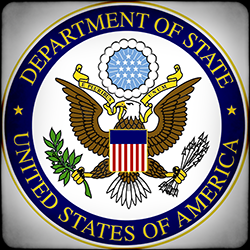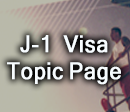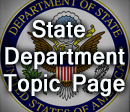When the government decides not to spend the needed amount of tax moneys on immigration enforcement, it can always argue that it is helping to reduce the national debt.
When the same government, presumably only lightly motivated to regulate migration, decides not to charge adequate fees for enforcement activities to immigration-related entities profiting by lax regulation, it has no such defense. There is no public sector savings, all the savings go to the private entities that use the program.

The State Department recently, and belatedly, and minimally, has announced that it is planning to slightly increase fees on the organizations that profit, often handsomely, from operating the very lightly supervised J-1 programs for exchange visitors.
So it is a small, very small, step in the right direction.
J-1 programs come in all sizes and shapes and deal with a wide range of different kinds of scholars and workers. There are high-level scholars, low-paid au pairs for usually affluent U.S. families, and the disgraced Summer Work Travel program that has been described so thoroughly by my colleague, Jerry Kammer, among other programs.
What these arrangements have in common is a total lack of regulation regarding the wages to be paid, something that should not be allowed in any nonimmigrant work program.
Here are some numbers that characterize the minimalistic regulation of these programs:
- 300,000-plus new visas annually
- 1,460 J-1 sponsors
- 13 staffers, as of 2009, to monitor all this activity.
- Four more staffers promised in the latest State announcement.
The first three numbers are from Daniel Costa's highly-useful report on the J-1 program for the Economic Policy Institute; the last is from the Department's current announcement of the new fee levels in the January 30 Federal Register.
So each staffer, at the new, improved 17-person level, will have 85 or 86 operations to monitor with the new fees in place! Those are impossible workloads and mean that very little more attention will be paid to these sponsors — many with multi-million-dollar-level programs — in the years to come.
State is supposed to recalculate these costs every two years, but this one is the first since 2009, a delay that is a boon to those regulated. It now charges $2,700 for sponsor designation (i.e., a license) or renewal of a designation; it plans to raise that to $3,982. It also plans to raise the fee for the visa holder (the alien) from $233 to $367.
My own most recent contact with this program was telling, if anecdotal.
I do volunteer income tax counseling for graduate students at a Washington-area university. The man on the other side of the table was a little old for a graduate student, maybe 50, and he had an advanced degree or two in a high-tech field. He was a J-1 from China and his salary was about $25,000 a year; I found out that he was in a J-1 program not as a student, but as a "half-time" researcher; the catch: he worked full time for the $25K and that was his only income. I felt that he was paid less than half of what he should have been paid, and offered to intervene on his behalf with the university. He pleaded with me to leave things alone, as anything I might do might cause him to lose his job, and his J-1 visa.
I agreed, but I will always remember him, and how he was treated by the J-1 program.
Getting back to the State Department's fee proposal. People are invited to comment on these ultra-modest fees and I hope that others will respond, as I will, that this is only a tiny step in the right direction and that State should raise the fees much higher, and do a much better job of regulating these programs, not only to protect the aliens involved, but to protect the U.S. workforce that has to compete with these workers.
For ways to respond, by postal mail, or email, see the third paragraph of the Federal Register notice cited above. The deadline for comments is April 1, 2013.


